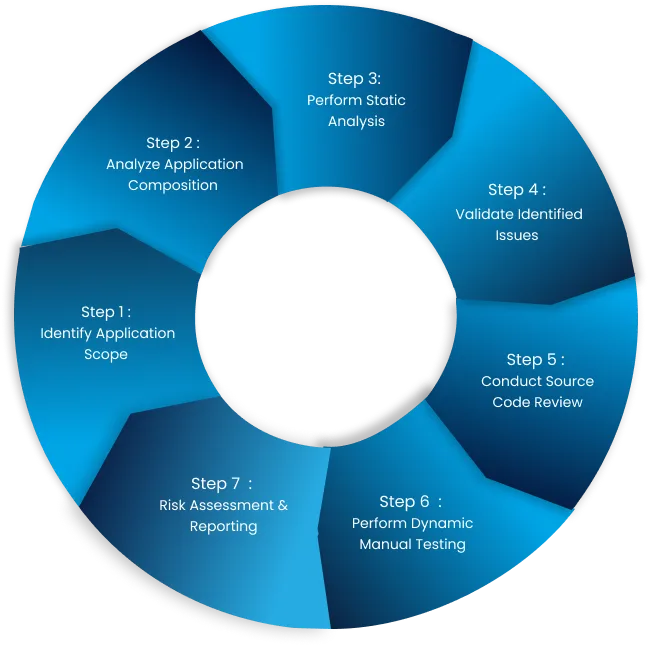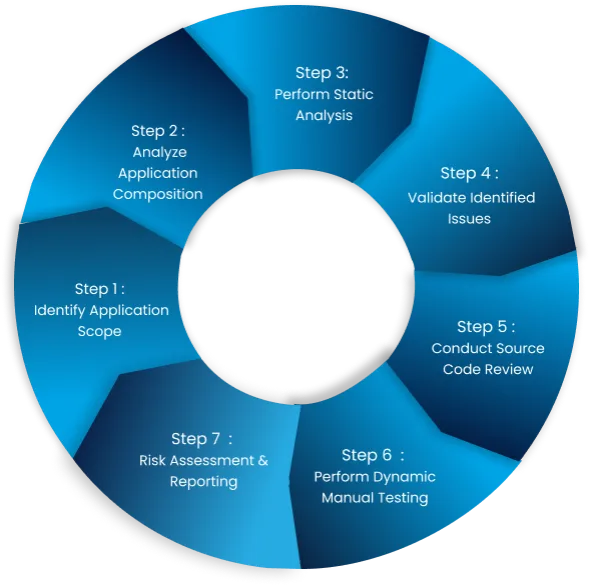Hybrid Application Security Testing
Hybrid applications combine web and mobile technologies, making them more susceptible to security threats. Our Hybrid Application Security Testing service identifies vulnerabilities before attackers can exploit them, ensuring your app remains secure, compliant, and resilient against cyber threats.



Overview
What is Hybrid Application Security Testing?
Hybrid Application Security Testing is a security assessment that simulates real-world attacks on hybrid applications to uncover vulnerabilities and weaknesses. Our methodology follows industry-standard frameworks like OWASP Mobile Security Testing Guide (MSTG) and OWASP Web Security Testing Guide (WSTG), ensuring a comprehensive evaluation.
By simulating attack scenarios, we identify risks such as insecure data storage, API vulnerabilities, authentication flaws, and platform-specific security issues. Our in-depth analysis provides actionable insights to strengthen your app’s security and protect sensitive user data


Key Benefits
What is Hybrid Application Security Testing?
Hybrid Application Security Testing is a security assessment that simulates real-world attacks on hybrid applications to uncover vulnerabilities and weaknesses. Our methodology follows industry-standard frameworks like OWASP Mobile Security Testing Guide (MSTG) and OWASP Web Security Testing Guide (WSTG), ensuring a comprehensive evaluation. By simulating attack scenarios, we identify risks such as insecure data storage, API vulnerabilities, authentication flaws, and platform-specific security issues. Our in-depth analysis provides actionable insights to strengthen your app’s security and protect sensitive user data
we can do one section regarding "Our Methodology" in the Hybrid application Security service:
Identify Application Scope
-Map the architecture, workflows, and entry points of the application.
Analyze Application Composition
-Review third-party libraries, dependencies, and integrations for potential risks.
Perform Static Analysis
-Use automated tools to analyze the source code for vulnerabilities and security flaws.
Validate Identified Issues
-Manually verify vulnerabilities from static analysis for accuracy and impact.
Conduct Source Code Review
-Perform targeted manual reviews for security weaknesses in sensitive code areas.
Perform Dynamic Manual Testing
-Simulate real-world attack scenarios on the running application to identify exploitable vulnerabilities.
Risk Assessment & Reporting
-Categorize findings by severity, provide actionable remediation guidance, and deliver a comprehensive report.


Comprehensive Security Assessment
Identify vulnerabilities across both web and mobile components of your hybrid application.

Cross-Platform Risk Mitigation
Address security risks unique to hybrid applications, including API security and authentication weaknesses.

Compliance and Regulatory Adherence
Ensure your hybrid application meets security standards such as GDPR, HIPAA, and PCI-DSS.

Protection Against Data Breaches
Safeguard sensitive user data and prevent unauthorized access.

Enhanced User Trust
Demonstrate your commitment to security, improving credibility and customer confidence.

Actionable Security Insights
Receive a detailed report with remediation steps to strengthen your security posture.
Numbers That Speak Security
Securing the Future, One Vulnerability at a Time

Years of cybersecurity expertise
Applications Secured
Clients protected

Put Your Cloud to the Ultimate Test
Why Choose Us?
With a team of certified ethical hackers and cybersecurity experts, we bring years of experience in securing web applications across various industries. Our penetration testing approach goes beyond automated scans—we perform thorough manual testing to identify complex security flaws. We provide clear, detailed reports with remediation guidance, helping your development team address vulnerabilities effectively. Partner with us for reliable, efficient, and industry-compliant security testing services that protect your web application from ever-evolving cyber threats.
Ask Question
Revolutionizing For Technology Future
What is the difference between hybrid and native application security testing?
How often should I conduct a security test for my hybrid app?
Will security testing disrupt my hybrid application's functionality?
What kind of report will I receive after the security test?
Can security testing help with compliance requirements?


